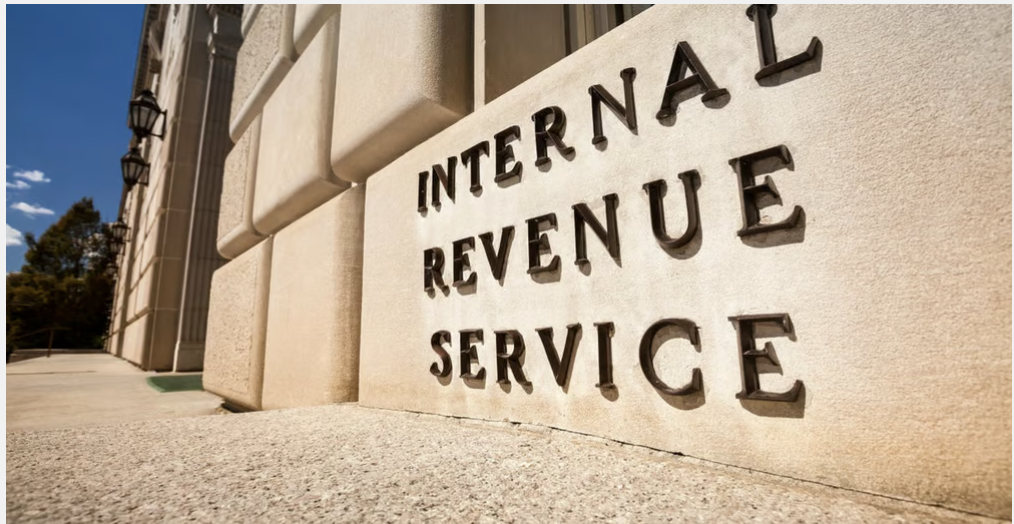
What to Do If You Owe Taxes to the IRS.
Owe taxes to the IRS? Learn what steps to take before penalties grow. AM Tax Inc. helps Sacramento and Roseville taxpayers set up payment plans, request penalty relief, and resolve IRS debt with expert guidance.
INCOME TAX
Anastasia Mironova EA
10/12/20258 min read


Understanding Your Tax Debt
Owing taxes to the Internal Revenue Service (IRS) can have significant ramifications for individuals and businesses alike. Tax debt arises from various circumstances, most commonly due to underreporting income, failing to withhold adequate amounts from paychecks, or miscalculating deductions. Each scenario presents its unique challenges and requires careful evaluation to address the situation effectively.
Underreporting income occurs when taxpayers fail to accurately report the full amount of income earned. This can happen inadvertently or deliberately, but regardless of intent, it can lead to significant tax liability. Additionally, individuals may find themselves owing taxes because their employers did not withhold enough taxes throughout the year. This situation may particularly affect individuals with multiple income sources or freelance work, where withholding may not be as straightforward, resulting in unexpected tax bills.
Miscalculating deductions is yet another common reason for tax debt. Taxpayers may mistakenly claim deductions or credits that they do not qualify for, leading to underpayment of their tax obligation. Each of these situations underscores the necessity for taxpayers to fully understand their financial records and tax responsibilities.
Knowing the exact amount owed is crucial when dealing with tax debt. The IRS provides various resources, including the Online Account feature, where individuals can view their balances and transaction histories. Accessing this information enables taxpayers to plan their next steps regarding repayment. Furthermore, it is imperative to promptly address any IRS communications; ignoring notices can escalate the situation and lead to penalties, interest, or possible legal actions.
Awareness and understanding of one's tax obligations promote proactive measures in managing tax debt and ensure adherence to federal guidelines.
Assess Your Financial Situation
When faced with tax obligations to the IRS, the first step is to evaluate your overall financial situation comprehensively. Understanding your income, expenses, and assets is crucial to determine your capacity to settle your tax debt. This assessment will provide insight into whether you can pay off the debt in full or if additional strategies are warranted.
Start by calculating your total monthly income, which may include wages, bonuses, investment returns, rental income, and any additional sources. Be meticulous in documenting these figures, as they will establish the foundation for your financial assessment. Next, tally your monthly expenses, which should encompass fixed costs such as housing, utilities, and insurance, as well as variable expenditures like groceries, transportation, and discretionary spending. It is vital to categorize these expenses accurately, as they will enable you to determine your disposable income.
Once you have a clear picture of your income and expenses, you can calculate your net income. This figure represents the amount remaining after your expenses have been deducted from your income. Furthermore, it is essential to assess your assets, including savings accounts, investments, and real estate holdings. Understanding your overall financial condition provides a valuable perspective on your tax responsibilities and aids in identifying potential strategies for resolution.
Creating a personal financial statement can streamline this process. This statement should list your income sources, fixed and variable expenses, and all assets. By organizing your financial data systematically, you will be able to explore your options more effectively. This evaluation not only prepares you to address your tax debt but also empowers you to make informed financial decisions going forward.
Explore Payment Options
When taxpayers find themselves faced with a tax debt to the IRS, understanding the available payment options is paramount. The IRS offers several avenues to assist those unable to pay owed taxes in full. The primary options include paying the total amount due, establishing an installment agreement, and submitting an Offer in Compromise (OIC).
Firstly, paying the owed amount in full is the most straightforward option. It eliminates the risk of accruing additional penalties and interest, which continue to grow over time. Taxpayers choosing this method should ensure that they have the necessary funds available to settle their debt promptly and avoid any complications.
For those who cannot pay their full tax bill, an installment agreement may be a viable choice. This agreement allows taxpayers to pay off their debt in monthly payments over a specified period. To qualify, taxpayers must owe $50,000 or less in combined tax, penalties, and interest. Additionally, they must have filed all required tax returns. While this option provides immediate relief from the burden of a single, lump-sum payment, it is essential to consider that interest and penalties will apply throughout the repayment period.
Another alternative is the Offer in Compromise, which allows individuals to settle their tax debt for less than the total amount owed. This option is typically suitable for taxpayers experiencing financial hardship. To qualify, individuals must provide detailed financial information demonstrating their inability to pay the full debt. The application process can be complex and requires a thorough understanding of the IRS’s criteria for acceptance.
Ultimately, each option has its pros and cons, and individuals should assess their own financial situations carefully. Whether opting for full payment, an installment agreement, or an Offer in Compromise, taking timely action is crucial in managing tax debts effectively.
Consider Professional Help
If you find yourself in a situation where you owe taxes to the IRS, seeking professional help can often be a prudent course of action. Tax complexities can be overwhelming, particularly if there are significant amounts owed or unusual circumstances surrounding your case. Engaging a qualified tax advisor or attorney can provide clarity and guidance, ensuring that you understand your options and obligations. These professionals can assist in clarifying tax legislation, helping you navigate through the nuances of tax law that may be difficult to interpret on your own.
A tax advisor typically provides services such as tax preparation, planning, and advice on how to effectively manage your tax liabilities. Tax attorneys, on the other hand, offer legal representation for tax disputes and can better negotiate settlements with the IRS if necessary. They are equipped to handle audits and appeals, safeguarding your rights throughout the process. Regardless of the specific service needed, professionals can help you determine the most suitable strategy for addressing your tax debt.
When considering hiring a tax professional, it's essential to be aware of the fees associated with their services. These fees can vary widely based on factors such as the complexity of your case and the experience of the professional. While some might charge a flat rate, others may work on an hourly basis. The investment in professional help can pay off by potentially reducing your tax liabilities or ensuring compliance with IRS regulations, thereby averting additional penalties and interest.
Overall, the primary advantage of enlisting the help of a tax professional is their expertise in negotiating with the IRS. Their experience can lead to more favorable outcomes, including payment plans or reduced penalties. Therefore, if you're uncertain about your tax situation, taking the step to consult with a professional can offer peace of mind and assist you in resolving your tax issues more effectively.
Stay in Communication with the IRS
Maintaining open lines of communication with the IRS is crucial when you owe taxes. Ignoring notices or failing to respond can lead to additional fees, penalties, and complications that may affect your financial status significantly. The IRS typically sends notices via mail, and it is essential to review these communications carefully and respond promptly.
When you receive a notice, it is important that you take the time to understand its content. Notices might inform you about balance due, tax return discrepancies, or other relevant issues. Responding correctly requires identifying the specific type of notice sent to you. For questions regarding the notice or clarification on your tax situation, you should contact the IRS directly at the number provided on the notice. It is advisable to have relevant documentation, such as your tax returns and any previous correspondence, at hand when speaking to an IRS representative. This preparation can lead to a more efficient and productive conversation.
Additionally, significant changes in your financial situation—such as job loss, medical emergencies, or changes in income—should be communicated to the IRS. Notifying them of these changes may open up options for payment plans or other valuation programs designed to assist taxpayers facing hardships. Keeping the IRS informed not only demonstrates your willingness to cooperate but can also facilitate a more favorable resolution.
Moreover, consider the etiquette involved in communicating with the IRS. Approach each conversation with respect and patience, as the representatives are there to assist you. Clearly articulate your situation, and be prepared to listen to their advice or suggestions. By fostering a respectful dialogue, you can navigate your tax obligations more effectively, ensuring that all parties involved can work toward an appropriate solution.
The Consequences of Ignoring Tax Debt
Failing to address tax debt can lead to serious and potentially life-altering consequences. The IRS typically imposes various penalties for non-payment of taxes, which can accumulate over time, significantly increasing the amount owed. For instance, the Failure-to-Pay penalty is 0.5% of the unpaid taxes due each month, and it can rise to 1% if the delinquency continues. Similarly, interest charges on unpaid tax liabilities accrue daily based on the federal short-term rate, further amplifying the financial burden for taxpayers who choose to ignore their obligations.
Moreover, if tax debts remain unresolved, the IRS may resort to severe measures to recover the owed amount. One such action is wage garnishment, whereby a portion of an individual's paycheck is directly withheld by their employer and forwarded to the IRS. This can lead to significant disruptions in personal finances, making it challenging to cover everyday expenses. In extreme cases, the IRS may place a tax lien on assets, which publicly documents their legal claim against an individual’s property. This can severely impact one's credit score and hinder the ability to secure loans or mortgages.
Ignoring tax debt does not make it disappear; instead, it compounds the financial and emotional stress associated with the obligation. Taxpayers are often subjected to relentless collection efforts, including aggressive communication from the IRS, adding to the anxiety surrounding their financial situation. Moreover, individuals disregarding their tax responsibilities may find themselves embroiled in legal troubles, as the IRS can initiate tax court proceedings in an attempt to enforce collections.
Understanding the repercussions of neglecting tax debt is vital. Promptly managing tax responsibilities is essential to avoid falling into this troubling cycle of accumulating penalties, interest, and legal challenges. Taking proactive steps can help mitigate the consequences and pave the way for a more stable financial future.
Preparing for Future Tax Seasons
To effectively manage future tax seasons and prevent the accumulation of tax debt, taxpayers must adopt a proactive approach. One of the first steps in tax planning is reviewing your withholding status. It is essential to assess whether the amount withheld from your paycheck accurately reflects your tax liability for the year. If you find that you had little to no taxes withheld, consider adjusting your W-4 form with your employer. This adjustment will help ensure that you pay sufficient taxes throughout the year, minimizing the likelihood of an unexpected tax bill.
Maintaining excellent financial records cannot be overstated in its importance for tax preparation. Systematically organizing your receipts, expenses, and income statements throughout the year can streamline the tax filing process. Utilizing accounting software or spreadsheet tools can help effectively track various financial activities. This organized approach enables you to identify potential deductions or credits and ensures nothing is overlooked when filing your returns.
Additionally, seeking professional tax advice can be invaluable. Consulting a tax professional or accountant will not only provide insights tailored to your specific situation but also offer guidance on potential strategies for tax savings. Tax professionals can assist in navigating complex tax laws and regulations, offering peace of mind during the tax seasons.
Moreover, staying informed about updates to tax legislation is crucial. Changes in tax laws can significantly impact your obligations and benefits. Regularly reviewing IRS publications or subscribing to trustworthy financial news sources will help you remain aware of any changes that may affect your tax planning strategies.
By following these recommendations—reviewing withholdings, keeping meticulous financial records, seeking professional advice, and staying updated on tax laws—taxpayers can effectively prepare for future tax seasons, reducing the risk of incurring additional tax debt.


